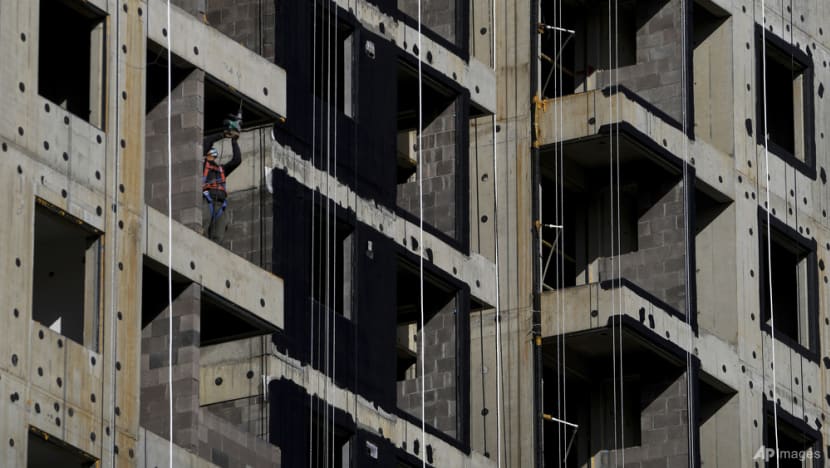Why China’s developers have so much dollar debt

Chinese real estate firms long prospered by selling a lot of dollar-denominated debt.
This year hasn’t been as kind: Their dollar bonds have lost about one-third of their value amid concerns about a liquidity crisis at one of the biggest: China Evergrande Group.
Worries about possible spillover or contagion have extended to other distressed developers and rippled across markets, prompting even the US Federal Reserve to express concern about potential fallout.
HOW MANY DOLLAR BONDS DO CHINESE DEVELOPERS HAVE?
Developers had US$207 billion in dollar-denominated bonds outstanding, accounting for about one-quarter of the total from China, according to Bloomberg-compiled data as of Oct 25.
The country’s biggest such borrower by amount outstanding is Evergrande at US$19.2 billion.
Most dollar debt sold by Chinese builders is considered high yield or junk rated, meaning it’s below investment grade.
Such ratings usually reflect a higher risk of the borrower not being able to repay the debt on time.
But such bonds have long been favored by global investors hungry for juicy returns in a world where a lot of safer alternatives are negative-yielding.
One of Evergrande’s dollar bonds, an 8.75 per cent note due 2025, was once one of the world’s most widely traded notes.
Related:
IS THAT DIFFERENT FROM ELSEWHERE?
Yes. Developers make up more than half of a Bloomberg index of high-yield dollar bonds issued by Chinese companies.
Property firms make up a much smaller portion in other countries, including about 4 per cent of the weighting in both a US high-yield index and a Bloomberg emerging market high-yield dollar bond index.
The latter also includes Chinese issuers.
HOW DID IT COME TO THIS?
China’s property sector expanded rapidly as the country’s economy became more market-oriented, in part because the country’s emerging middle class viewed buying a home as one of the few safe investments available.
Home prices skyrocketed, fueling speculation and more demand.
With quick expansion comes large funding needs.
In addition to bank loans, developers turned to the vast pool of money in the global dollar bond market, which was hungry for higher yields.
Debt piled up as Chinese builders kept going back to refinance, with annual sales of such notes surging from US$675 million in 2009 to US$64.7 billion in 2020, according to Bloomberg-compiled data.
They account for nearly half the world’s distressed dollar bonds.
WHY IS THAT A PROBLEM?
For years, China’s tried to defuse the country’s growing debt bomb amid fears it could set off a disastrous financial meltdown.
As part of that campaign, China in 2020 tightened financing rules for real estate companies with the aim of reducing reckless borrowing.
But many developers don’t have enough available cash to cover their liabilities, and they struggle to repay existing bonds if they cannot borrow more.
With Evergrande’s latest troubles, borrowing costs soared to the highest level in a decade to compensate for the rising risks, which in turn restricts a company’s ability to issue new bonds.
Meanwhile, major international ratings downgraded China’s developers at a record pace. Defaults also hit another record in 2021.
WHERE IS IT HEADED?
Chinese officials have tried to talk up the market, with the vice premier and central bank governor both saying in October that risks in the property market were controllable.
If defaults start spreading anyway, that could send shock waves across regional financial markets as Chinese developers comprise a big chunk of many indexes.
Social unrest could erupt if houses that people have put money down on don’t get built. Meanwhile, the crisis involving Evergrande, Fantasia Holdings Group Co and a number of other developers has led to a slowdown in bond issuance.













